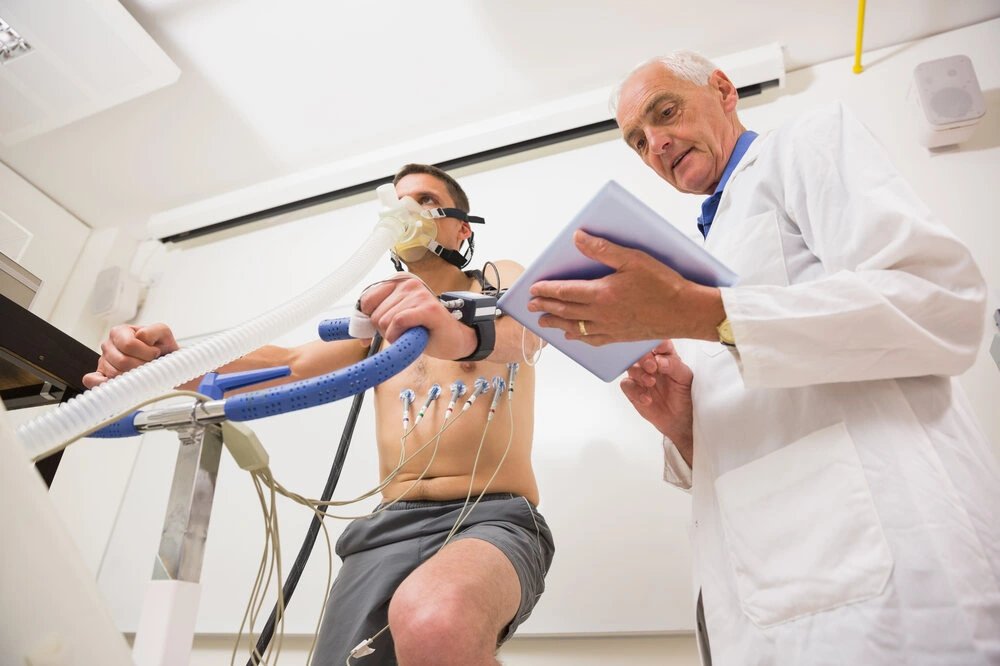The Next Step After An Abnormal Stress Test: Important Insights

The next step after an abnormal stress test? It’s crucial to consult with your healthcare provider promptly. Following an abnormal result, further diagnostic tests may be recommended to assess your heart health comprehensively. These additional tests could include imaging studies or a cardiac catheterization procedure. Understanding the implications of an abnormal stress test result and taking necessary actions promptly is key to managing your heart health effectively. Your healthcare provider will guide you through the next steps tailored to your individual needs.
What is the Next Step After an Abnormal Stress Test?
Understanding the Significance of an Abnormal Stress Test
So, you’ve just had a stress test, and the results have come back abnormal. It’s natural to feel worried or confused about what this means for your health. But fret not! An abnormal stress test doesn’t always indicate a serious problem. In fact, it could be a proactive step towards better managing your health.
Consulting with Your Healthcare Provider
The first crucial step after receiving abnormal stress test results is to consult with your healthcare provider. Your doctor is the best person to interpret these results in the context of your overall health and medical history.
Understanding the Reason for the Abnormal Results
Your healthcare provider will explain the reasons behind the abnormal stress test results. It could be due to a variety of factors, such as underlying heart conditions, medication effects, or other health issues. Understanding the cause is key to determining the next steps.
Discussing Treatment Options
Based on the interpretation of your stress test results, your doctor will discuss potential treatment options with you. This could include lifestyle changes, medication adjustments, or further diagnostic tests to get a clearer picture of your heart health.
Further Diagnostic Tests
Depending on the initial stress test results and your overall health profile, your doctor may recommend additional diagnostic tests to gather more information about your heart health.
Echocardiogram
One common follow-up test after an abnormal stress test is an echocardiogram. This test uses sound waves to create a detailed image of your heart’s structure and function, helping your doctor assess any abnormalities.
Coronary Angiography
In some cases, a coronary angiography may be recommended to visualize the blood flow in your coronary arteries. This test can help identify blockages or narrowings that may require intervention.
Lifestyle Modifications
In many cases, lifestyle modifications are an essential part of managing heart health, especially after an abnormal stress test.
Healthy Diet
Your doctor may recommend dietary changes to lower cholesterol levels, reduce blood pressure, and improve overall heart health. Incorporating more fruits, vegetables, whole grains, and lean proteins can have a positive impact on your heart.
Regular Exercise
Physical activity is vital for a healthy heart. Your healthcare provider may suggest an exercise regimen tailored to your fitness level and health goals. Regular exercise can improve cardiovascular fitness and reduce the risk of heart disease.
Medication Management
If your abnormal stress test results indicate the need for medication, your doctor will prescribe appropriate medications to manage your heart health.
Blood Thinners
In some cases, blood thinners may be prescribed to reduce the risk of blood clots and complications associated with certain heart conditions.
Beta-Blockers
Beta-blockers are common medications used to lower blood pressure, reduce chest pain, and improve overall heart function. Your doctor will determine if these medications are suitable for you.
Monitoring and Follow-Up Care
After an abnormal stress test, regular monitoring and follow-up care are essential to track your progress and make necessary adjustments to your treatment plan.
Follow-Up Appointments
Your doctor will schedule follow-up appointments to assess your response to treatment, monitor any changes in your heart health, and address any concerns or questions you may have.
Monitoring Heart Health
Regular monitoring of your heart health through tests, such as blood pressure checks, cholesterol screenings, and heart function assessments, will help ensure that your heart health is well-managed.
In conclusion, receiving abnormal stress test results can be a cause for concern, but it is also an opportunity to take proactive steps towards better heart health. By consulting with your healthcare provider, undergoing further diagnostic tests if needed, making lifestyle modifications, managing medications, and attending regular follow-up appointments, you can effectively manage your heart health and reduce the risk of complications. Remember, you are not alone in this journey – your healthcare team is there to support you every step of the way.
What Is The Next Step After An Abnormal Stress Test? – Cardiology Community
Frequently Asked Questions
What does an abnormal stress test result indicate?
An abnormal stress test result typically indicates that there may be issues with blood flow to the heart during physical activity. This could suggest underlying heart conditions such as coronary artery disease or potential heart muscle abnormalities.
What should I do if my stress test results are abnormal?
If your stress test results are abnormal, the next step would usually involve further diagnostic tests to determine the specific cause of the abnormality. Your healthcare provider may recommend additional imaging tests, such as a coronary angiography, to get more detailed information about the condition of your heart.
Can an abnormal stress test result be a false positive?
While it is possible for stress test results to show abnormalities that turn out to be false positives, it is essential not to ignore them. Your healthcare provider will need to further investigate to confirm whether the abnormality is indeed a false positive or indicative of an underlying heart issue.
What are the treatment options for individuals with abnormal stress test results?
The treatment options for individuals with abnormal stress test results depend on the underlying cause identified through further diagnostic tests. It may involve lifestyle changes, medications, or procedures like angioplasty or coronary artery bypass surgery to address the heart condition and improve overall cardiovascular health.
How often should I follow up with my healthcare provider after an abnormal stress test?
After receiving abnormal stress test results, it is crucial to follow up with your healthcare provider as recommended. The frequency of follow-up visits will depend on the specific findings and the treatment plan devised by your healthcare team. Regular monitoring is essential to track progress and make any necessary adjustments to your care plan.
Final Thoughts
After an abnormal stress test, consulting a cardiologist is crucial for further evaluation. The cardiologist will review the test results and may recommend additional tests such as a coronary angiogram. Based on these findings, a treatment plan will be devised to address any underlying heart conditions. Remember, taking prompt action after an abnormal stress test is essential for managing cardiovascular health effectively.







